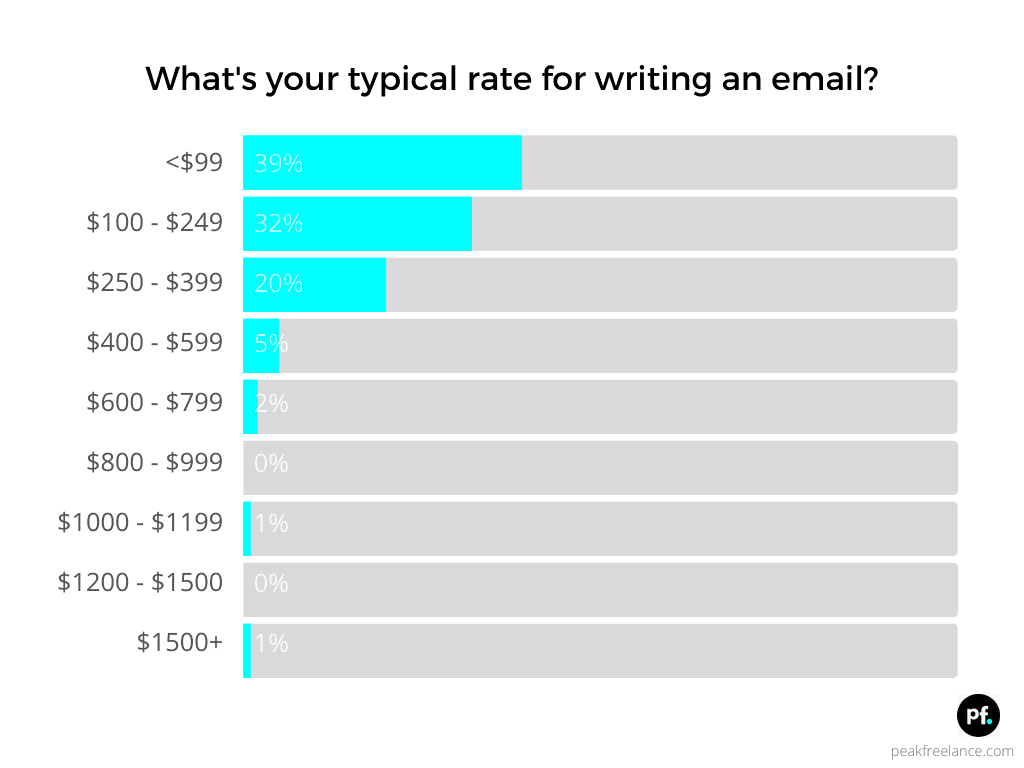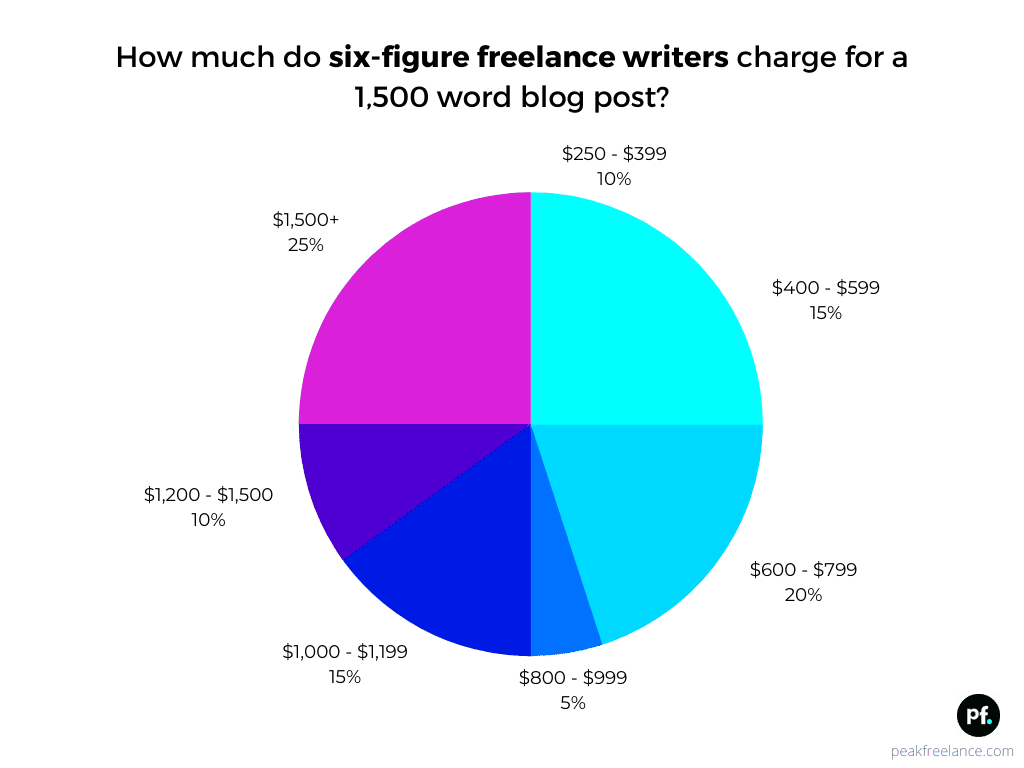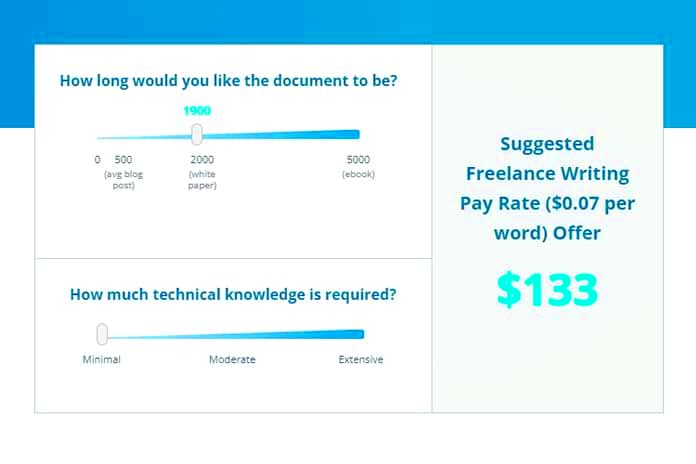As a freelance writer, one of the first questions you’ll face is how much to charge for your work. A common pricing method is charging per word, which can offer clarity and flexibility both for you and your clients. Understanding how per word rates work is crucial for building a sustainable freelance career. This pricing model helps writers set a fair price based on their writing output, while also offering clients a predictable cost structure. However, the rate you charge can vary widely based on several factors that we’ll discuss later in this post.
Factors That Affect Per Word Rates in Freelance Writing

There are many variables that influence how much you should charge per word as a freelance writer. These factors are not just limited to your skill level but also include the type of writing, the client's budget, and even your geographic location. Let's break down some of the most common factors:
- Experience: New writers might start with lower rates, while seasoned professionals can charge significantly more due to their proven track record and expertise.
- Type of Writing: Some writing niches, like technical or legal writing, typically command higher rates due to the specialized knowledge required.
- Client Type: Large corporations or established brands may have bigger budgets and can pay more per word compared to smaller businesses or individual clients.
- Turnaround Time: Writers who offer quick turnarounds might raise their rates for urgent work.
- Geography: Writers from regions with a higher cost of living may charge higher rates, while those in areas with lower costs might have lower rates.
By considering all these factors, you can adjust your pricing to reflect the value you bring to the table while remaining competitive in the market.
Also Read This: Achieving Success in Freelancing
Common Industry Rates for Different Types of Writing

Rates for freelance writing vary across industries and types of writing. Here’s a general overview of what writers might expect to charge for various types of work. Keep in mind that these are averages, and individual rates may vary depending on the factors mentioned earlier.
| Type of Writing | Average Per Word Rate |
|---|---|
| Blog Posts | $0.10 to $1.00 per word |
| Website Content | $0.15 to $1.00 per word |
| SEO Articles | $0.05 to $0.25 per word |
| Technical Writing | $0.30 to $1.00 per word |
| Copywriting | $0.25 to $1.00 per word |
| Ghostwriting | $0.50 to $2.00 per word |
| Creative Writing | $0.10 to $0.50 per word |
| Academic Writing | $0.15 to $1.00 per word |
These rates are subject to change based on your experience, reputation, and the specific demands of a project. Highly specialized writing such as technical or medical content often demands higher rates due to the expertise required, while more general writing tends to have lower rates.
Also Read This: What Should Be the Gig Title on Fiverr?
How Experience and Expertise Influence Rates

Your experience and expertise play a significant role in determining how much you can charge as a freelance writer. As you gain more experience, you’ll develop specialized knowledge that can increase your value. Clients are willing to pay higher rates for writers who can demonstrate proficiency in specific industries or niches. Here’s how experience and expertise can impact your rates:
- Beginner Writers: As a beginner, you may charge lower rates to build a portfolio. Clients understand you’re still building experience, and it’s important to stay competitive when starting.
- Intermediate Writers: With a few years of experience, you’ll have a strong portfolio and can start charging higher rates. Your ability to handle different types of writing projects will increase your value to clients.
- Experienced Writers: Seasoned writers who have a proven track record of delivering quality work consistently can demand premium rates. Their expertise in specific niches like healthcare, law, or technology allows them to command higher pay.
- Subject Matter Experts: Writers who specialize in niche topics like finance, engineering, or science can charge higher rates because their deep knowledge is valuable. Clients are willing to pay more for specialized skills.
In short, the more you invest in honing your skills and gaining experience, the more you can increase your rates. Clients trust writers with experience and are willing to pay more for high-quality work.
Also Read This: Pricing Guidelines for Freelance Copywriting
Setting Your Own Per Word Rate as a Freelance Writer
Setting your per word rate as a freelance writer can be tricky, especially when you're just starting. However, it’s an essential part of establishing your business. Here are a few steps to help you determine a fair rate:
- Assess Your Experience: If you're new, start by researching what beginner writers typically charge and set your rates accordingly. As you gain experience, gradually increase your rates.
- Consider the Type of Work: The complexity of the writing task plays a major role. More technical or specialized work usually demands higher rates. Simple blog posts might have a lower rate compared to in-depth reports or white papers.
- Factor in Your Time: Calculate how long it takes you to write a piece. If a project takes you several hours, you may want to adjust your rate to ensure you're compensated fairly for your time.
- Research the Market: Look at industry standards, especially for your niche. Websites like Glassdoor or freelance platforms like Fiverr or Upwork provide insight into the going rates for freelance writing.
- Factor in Expenses: Don’t forget to account for taxes, software, and other business-related expenses. Your rates should be designed to cover these costs as well.
Once you have an idea of the market rate and what you’re worth, you can confidently set your rates. It's also important to periodically reassess your pricing as your experience and client base grow.
Also Read This: How to Launch Your Career as a Freelance Mobile App Developer
Tips for Negotiating Higher Per Word Rates
Negotiating your rates as a freelance writer can feel intimidating, but it’s a necessary skill to master. You can increase your chances of securing a higher per word rate by following these strategies:
- Showcase Your Expertise: If you specialize in a particular niche, use that to your advantage. Clients will pay more for a writer who knows the ins and outs of their industry.
- Highlight Your Portfolio: A strong portfolio showcasing past work can give clients confidence in your abilities. The more impressive your past work, the easier it is to justify higher rates.
- Be Clear About Value: When negotiating, emphasize the value you bring to the table. If your writing can help clients increase sales, improve their SEO, or engage readers, make sure they know that.
- Offer Tiered Pricing: Instead of one rate, offer different packages based on project complexity. For example, you could have a lower rate for basic blog posts and a higher rate for detailed, in-depth articles.
- Don’t Be Afraid to Walk Away: If a client isn’t willing to meet your rate, it’s okay to politely decline. Being willing to walk away shows that you know your worth and are confident in your abilities.
- Consider Retainers: For long-term clients, suggest a retainer agreement where you’re paid a fixed monthly rate. This can ensure consistent income and eliminate the need for constant rate negotiations.
Effective negotiation is all about confidence and communication. By demonstrating the value you bring and being clear on your terms, you can successfully negotiate higher rates with clients.
Also Read This: What Are Briefs in Fiverr?
How to Find Clients Willing to Pay Competitive Rates
Finding clients who are willing to pay competitive rates for your writing services can be a challenge, but it’s absolutely possible with the right approach. Whether you're new to freelancing or an experienced writer, having a strategy to attract the right clients is key. Here are some ways to connect with clients who value quality writing and are willing to pay for it:
- Network in Your Niche: Specializing in a niche can make it easier to attract clients willing to pay higher rates. Attend industry events, webinars, and join relevant online communities to build relationships with potential clients who appreciate your expertise.
- Use Freelance Platforms: Platforms like Fiverr, Upwork, and Freelancer are excellent places to connect with clients. However, to attract higher-paying clients, make sure your profile clearly highlights your expertise, work samples, and testimonials.
- Build an Impressive Portfolio: A strong portfolio is your best marketing tool. Showcase your best work, especially pieces that align with your niche. Clients are more likely to pay a premium if they see the value in your previous work.
- Pitch Directly to Companies: Don’t wait for clients to come to you. Research companies that may need content and pitch your services directly. Personalize your pitch to show that you understand their needs and explain how your writing can solve their problems.
- Word of Mouth: Happy clients can be your best promoters. After completing a job successfully, ask satisfied clients for referrals. A recommendation from someone trusted can lead to higher-paying opportunities.
By positioning yourself as an expert, showcasing your best work, and actively seeking high-quality clients, you’ll increase your chances of securing higher-paying freelance writing jobs.
Also Read This: Curious about adding shadows in Canva? Follow these simple steps
Conclusion on Freelance Writing Rates Per Word
Setting the right per word rate is essential for any freelance writer who wants to earn a fair income while providing quality work to clients. Understanding how to evaluate your skills, niche, and market trends will help you determine the appropriate rate for your services. Remember, factors like experience, type of writing, client budget, and expertise all influence your rates.
While starting with lower rates might be necessary for gaining experience and building a portfolio, it’s important to regularly reassess your pricing strategy. As your skills improve, so should your rates. By staying informed about industry standards and consistently delivering high-quality work, you can attract clients who are willing to pay competitive rates for your expertise.
In the end, being confident in your worth and communicating it effectively to potential clients will allow you to build a sustainable freelance writing career. Keep refining your skills, negotiating confidently, and finding new ways to market your services to ensure that your per word rates reflect the true value you bring to your clients.
Frequently Asked Questions About Freelance Writing Rates
Here are some common questions freelance writers ask when it comes to setting per word rates:
- How do I know what to charge as a beginner? Start by researching industry standards for beginners. You can also use freelance platforms to see what other writers charge for similar work. It’s important to be realistic about your experience and adjust your rates as you gain more expertise.
- Should I charge per word or hourly? Per word rates are commonly used for writing, especially for projects like blog posts and articles. Hourly rates might be better for tasks that require significant time, like editing or consulting. Choose the method that works best for the project and your workflow.
- How can I increase my rates over time? As you gain experience and build a stronger portfolio, raise your rates gradually. Keep track of your accomplishments, client testimonials, and any new skills you acquire to justify higher rates during negotiations.
- What if a client doesn’t want to pay my rate? If a client refuses to meet your rate, you can either negotiate a middle ground or politely walk away. It's important to know your worth and not undersell yourself for the sake of landing a project.
- What are the highest-paying writing niches? High-paying writing niches include technical writing, copywriting, medical writing, legal writing, and financial writing. These areas require specialized knowledge and skills, but they offer higher per word rates due to the complexity of the work.
By staying informed and confident in your value, you can navigate the freelance writing world and secure clients who appreciate your work at the rates you deserve.




